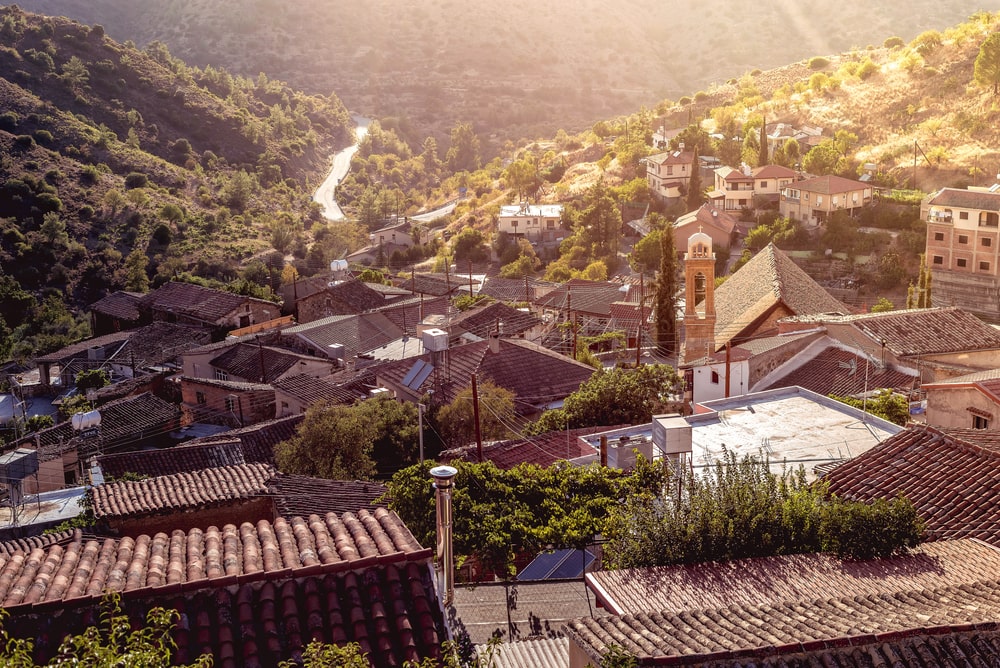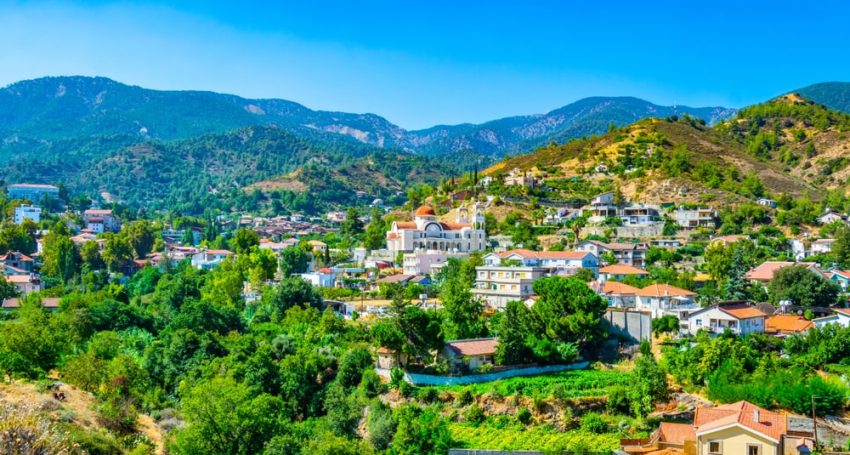How it all started
Commanding
About thirty years ago, no more than a couple of hundreds of people from the USSR lived in Cyprus: Russian spouses of Cypriot specialists, who studied in the Soviet republics, representatives of the diplomatic mission, as well as “sent”: engineers, archaeologists, theologians and others. Almost all of them knew each other personally, gathered on holidays, sang Russian songs, shared nostalgia and spent time in the best traditions of white emigration in Paris. A parcel from the Homeland was equated to a miracle, a handful of buckwheat poured to their best friends as a sign of special location, and a slice of rye bread was considered a rare delicacy.
Now the Russian-speaking population of Cyprus, according to various estimates, is between 30 and 50 thousand people. In Cyprus there are Russian newspapers, stores, a TV channel, a radio station, schools, a church, regular concerts of Russian stars, and recently there is a political party headed by a Russian.
Russian-speaking residents can be divided into four categories: businessmen/wealthy owners of real estate; spouses of Cypriots; Pontic Greeks; employees of Russian companies.
Businessmen
Russian and Ukrainian businessmen were the first to start learning Cyprus in the mid 90s. The Russians replaced the Lebanese who had fled from the civil war, and who a decade earlier had also injected considerable funds into the Cypriot economy.
The peak of the “Russian invasion” is in the mid-late 90s. At that time, Cyprus was an offshore zone (and can not get away from this reputation to this day, despite the fact that the offshore career of the island ended in 2004, since the accession to the EU). The Mediterranean island immediately attracted Russians and Ukrainians: warm, calm, sea, sun, palm trees, local auditors and lawyers meet with open arms, and only three hours flight from Moscow or Kiev.
Soon the first Russian companies started to open, mostly in Limassol, due to more developed infrastructure (unlike Larnaka) and proximity to the sea (unlike Nicosia). Many businessmen immediately bought real estate and moved their families to Cyprus. Demand gives birth to supply: in a couple of years Russian schools were opened, Russian newspapers started working, and stores with Russian products appeared. Thus Limassol became an unspoken “Russian capital” of Cyprus.

Tourist beauties and their descendants
Also in the mid-90s and early 2000s, the first Russian tourist boom came (the second we are seeing now). Unbelievers of their happiness islanders, who used to be pampered with attention only by British and Scandinavian women, were happy to start romances with stately Slavic beauties, often ending in marriage. As a result, in 5-7 years, the Russian-speaking community of the island has increased by several tens of thousands of people, and the gene pool of the island was replenished with light-eyed mestizos, boycottedly speaking two languages.
Greek repatriates
Pontic Greeks come from Georgia, Ukraine and the Black Sea coast of Russia. In the late 1980s and early 1990s, they emigrated to Greece from the half-decaying USSR under a program for returnees (similar to what Germany and Israel offered to ethnic Germans and Jews). Over time, several thousand families moved from Greece to Cyprus in search of a “better life”. Most of the Pontic Greeks live in Paphos. Men mostly work in the construction industry, women – in restaurants and hotels.
As a result of the global crisis in 2008, Paphos suffered the most and the very first in Cyprus, as it was left by several tens of thousands of Britons living there, mostly pensioners. Because of the sharply collapsed British pound, Cyprus, which by that time had already entered the Euro zone, became beyond their reach. The mass exodus of the British in a few days collapsed the real estate market of Paphos, which hurt the builders. Women who worked mostly in restaurants and hotels became the main stronghold of families, and since work is seasonal, many families faced desperate need. At that time, the precursors of their own crisis were already felt in Cyprus, and Pontic families began to leave the island en masse: who to Greece, who to Germany, and some returned to Russia, where by that time the situation was more stable.
Qualified specialists
Another category of Russian speakers living in Cyprus are employees of Russian companies. When a company working in Cyprus can not find a qualified specialist on the island or in the EU (according to the law, the priority in employment – for Cypriot citizens, and then – the Europeans), immigration authorities provide a quota for a work visa. The most popular professions are all those related to IT, as well as auditors, accountants, lawyers; in addition, recently opened more and more Forex companies, which also constantly require employees.


